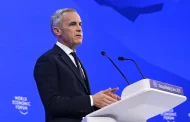President Muhammadu Buhari of Nigeria is widening his government’s offensive from a strictly military or peace enforcement strategy to a theological attack on those he believes to be fuelling current insecurity crisis in Nigeria. He is putting political motives to the narrative that his government is unwilling to contain the spate of killings raging in Nigeria because he is Fulani, the ethnic identity of herdsmen and ‘herdsmen’ suspected to be the killers.
This is not the first time the president and the government has made this argument but this is arguably the first time the president has gone theological by locating the motive for such thinking in “evil in the minds of men”. The president told leaders of the Christian Association of Nigeria, (CAN) from the 19 of the 36 states making up Nigeria who went to see him Thursday that otherwise, any suggestion to that effect is not only an unfair criticism but one that did note that Plateau State where the latest killings took place had been crisis-ridden for years except in the past three years when the president’s party has been in power there. The president attributed the peace to what he called the state governor’s hard work for peace and the presence of the military’s Operation Safe Haven.
By attributing the insecurity crisis to evil, the president has gone metaphysical, risking allegation of closure since no one can prove such claim. It is a regular pragmatic overture in Nigerian public life to invoke evil or God. While some see invocation of God, for example, as a way of cleverly closing the issue, others say it is a way by which a deeply wronged person hands over the case for justice to God to deal with. It is unlikely that there would be a consensus in this case.

VP Osinbajo and Gov Simon Lalung of Plateau State
The president not only invoked God, he also took to historical view of the killings in Plateau. “There is no administration that has not had to contend with killings in these same areas over the years”, reminding his listeners how a State of Emergency was declared and a governor was even replaced by an administrator after thousands were killed in Plateau State in 2001. He meant 2004.
Arguing that Nigeria belongs equally to Christians and Muslims and even those who claim ignorance of God, President Buhari said he has not given up hope, assuring of the government’s determination to overcome the security challenge, a process he said has already started with deployment of extra Special Forces and intelligence back up from that community. This is in addition to Operation Safe Haven operating towards securing Plateau, Operation Whirl Stroke 1 (OPWS) in Benue, Taraba and Nasarawa, as well as OPWS 2 targeting Zamfara and Kaduna states.
What is missing, implied the president, is for communities, religious leaders, youths and other stakeholders to buy into the enhanced security effort so that, with the media, “Nigerians can collectively shame those who are stoking the fires of ethnic and religious conflicts for their short-term political gains”. He had earlier reckoned with the media as holding in its hands “the power to frame and shape the perspectives and narratives which influence the thinking of millions of people within and outside Nigeria”.
The president might have been responding to deep seated fears about what happens next should there be another pronounced killings in areas that are open to ethno-regional and religious interpretations in a vastly diverse society such as Nigeria. While there are those calling for shuffling of security chiefs, there are others keener on a Government of National Unity, (GNU).
The spate of killings has been compounded by claims by a former Chief of Army Staff to the effect that the armed forces collude. Contextualists and critics of the president say he made the government vulnerable to claims of collusion by concentrating security appointment in one ethno-religious identity that makes a narrative of collusion believable. More critical observers point at elite fragmentation and the breakdown of elite consensus and the need to approach the crisis from that end as breakdown of consensus is always an invitation to crisis. This is more so that all these are happening on the eve of a make or mar General Elections in a political economy in which political office is a mode of production itself. Again, only time will tell how this stalemate ends.




























